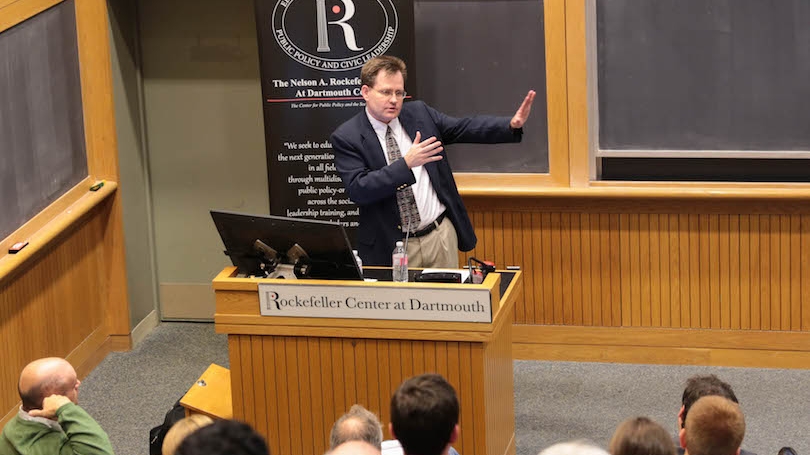
- Public Policy
- Leadership
- Funding
- News & Events
- About the Center
Back to Top Nav
Back to Top Nav
Back to Top Nav
Back to Top Nav
What government system is currently in place in the United States of America? Ask different groups of citizens, and you may receive very different answers. Some may answer democracy, others constitutional republic, or perhaps representative democracy. However, the Central Intelligence Agency classifies our government as federal presidential republic. This confusion may in part be due to our nation’s unwavering support of the ideals of democracy. What is the true nature of our government? How did our founding fathers come to believe this government was the most appropriate form?
On Thursday, October 6th, Keith E. Whittington spoke on the nature of popular government, particularly within the American political system. While our founding fathers agreed that our government should at its core be a popular government, they fought over what form said government should take. As the Constitution was drafted, many different opinions were voiced in an effort to create a progressive, innovative system that would serve the needs of the American people. The differences between a democracy and a republic, the importance of ensuring a popular government is a free government, and the question of how much democracy is too much democracy were all hotly debated. Whittington focused on these three major points, as well as detailed the many contentious issues in today’s system.
Keith E. Whittington is the William Nelson Cromwell Professor of Politics at Princeton University. He is the author of Political Foundations of Judicial Supremacy: The Presidency, the Supreme Court, and Constitutional Leadership in U.S. History; Constitutional Interpretation: Textual Meaning, Original Intent, and Judicial Review; and Constitutional Construction: Divided Powers and Constitutional Meaning; and coeditor of Congress and the Constitution and The Oxford Handbook of Law and Politics; and has published widely on American constitutional theory and development, judicial politics, the presidency, and federalism. His work has won the C. Herman Pritchett Award for best book in law and courts and the J. David Greenstone Award for best book in politics and history.
Submitted by Olivia Bewley ’19, Rockefeller Center Student Program Assistant for Public Programs
The views and opinions expressed and any materials presented during a public program are the speaker’s own and do not necessarily represent the views and opinions of the Rockefeller Center or constitute an endorsement by the Center.